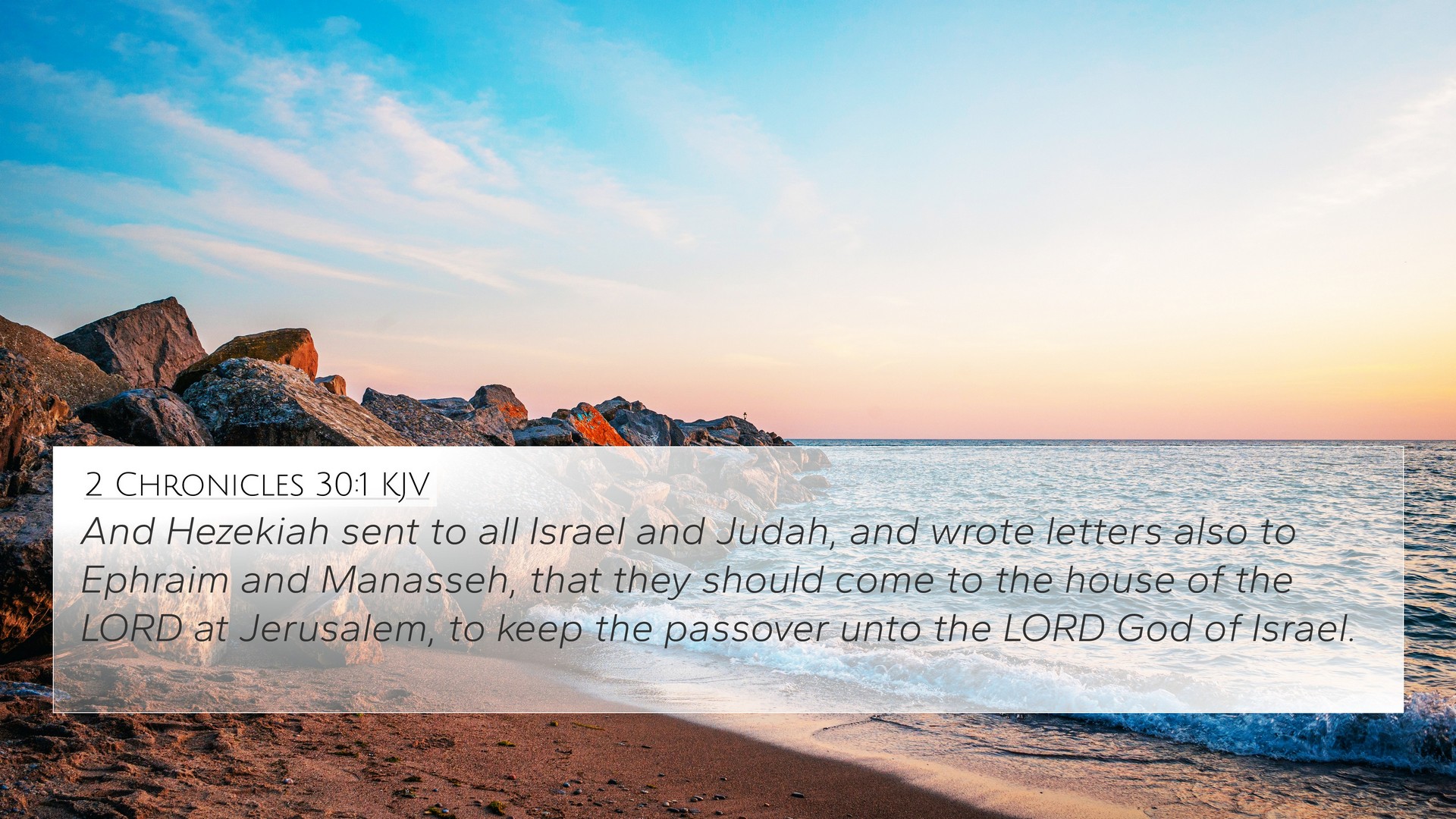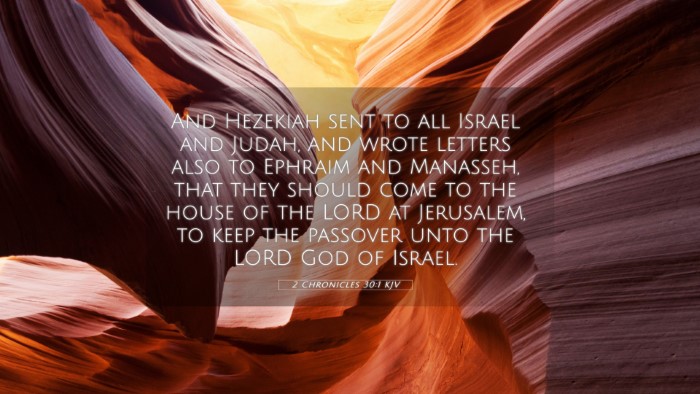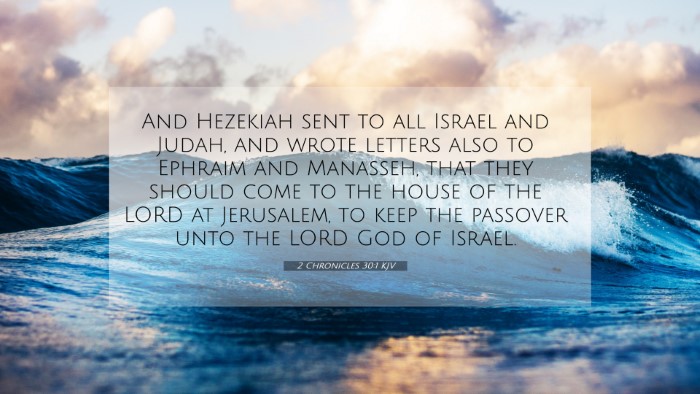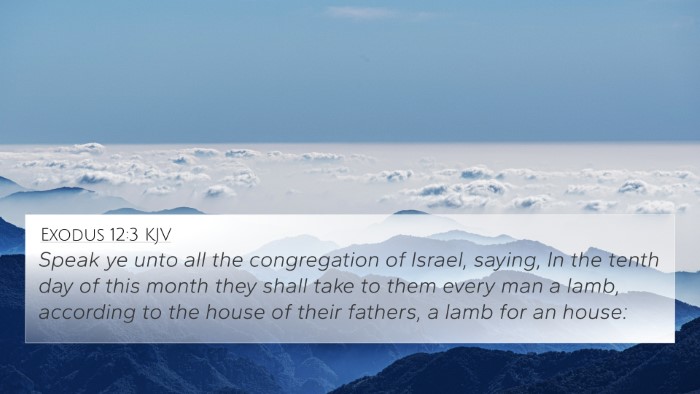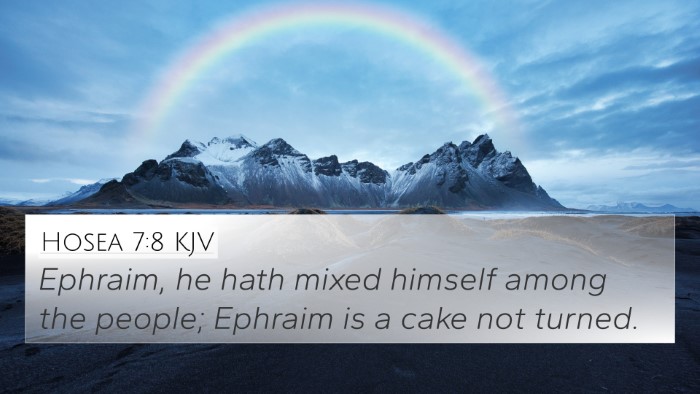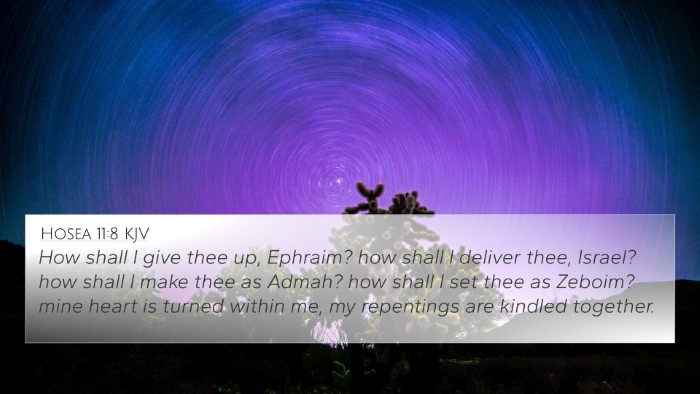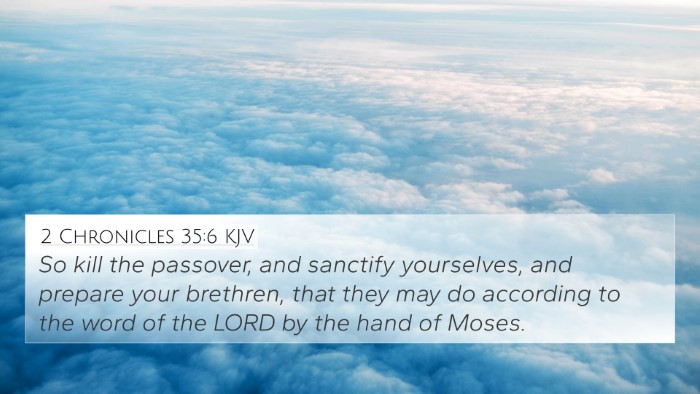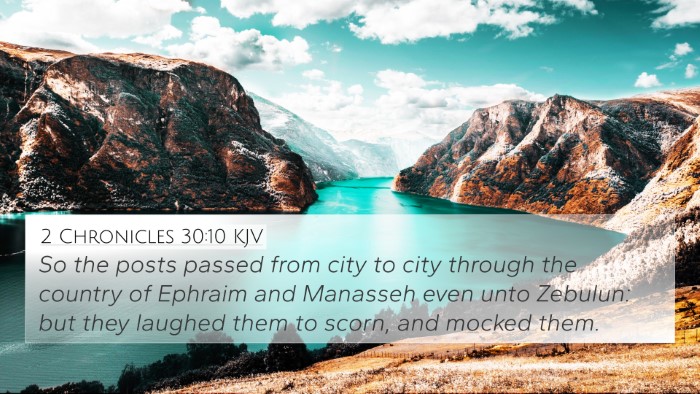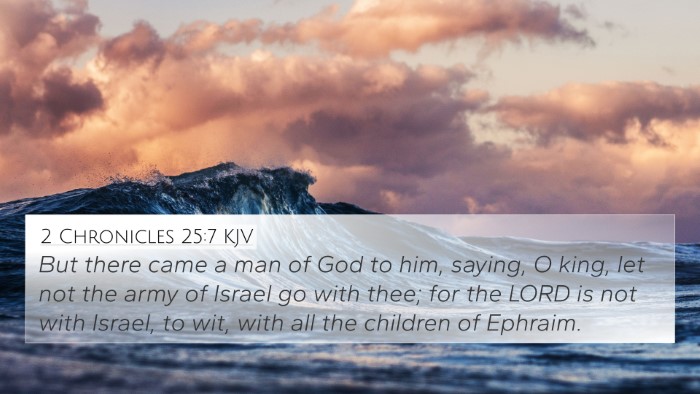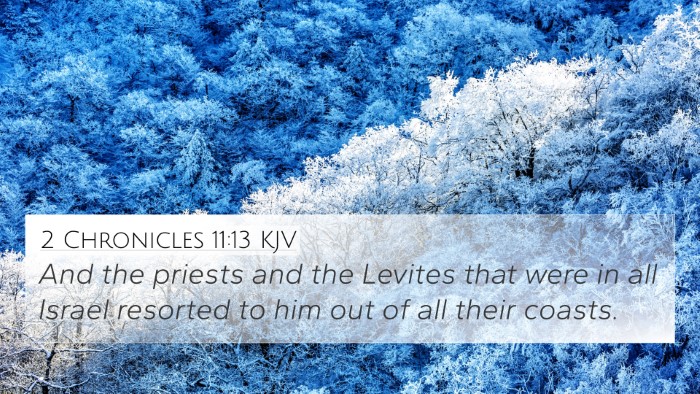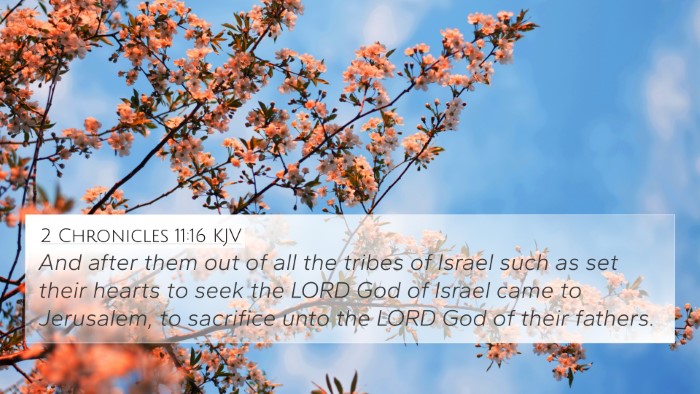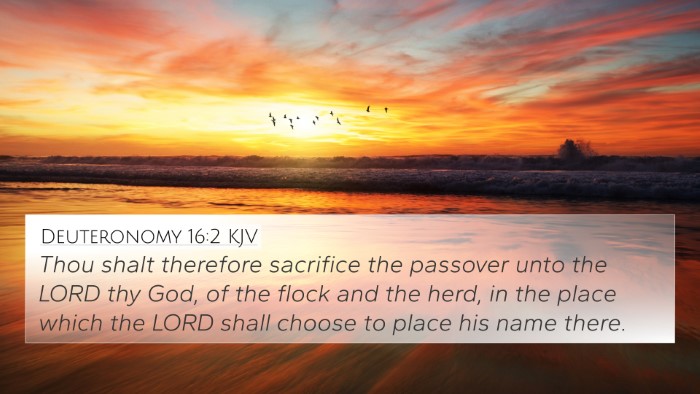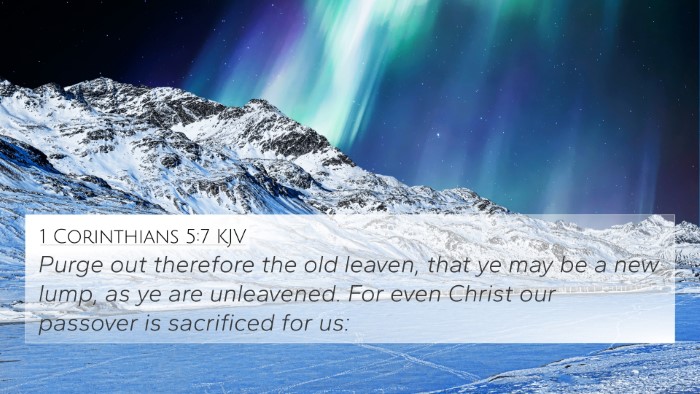Understanding 2 Chronicles 30:1
Overview: 2 Chronicles 30:1 captures a pivotal moment in the history of Israel under King Hezekiah's reign. This verse highlights a significant religious revival and the king's initiative to celebrate Passover, emphasizing communal worship and national repentance.
Verse Text
"And Hezekiah sent to all Israel and Judah, and wrote letters also to Ephraim and Manasseh, that they should come to the house of the Lord at Jerusalem, to keep the Passover unto the Lord God of Israel."
Analyzing the Context
The verse occurs amid a period of restoration under King Hezekiah, reflecting his desire to unify the divided kingdom of Israel and Judah in worship. The Passover celebration serves not only as a religious observance but also as a means of healing national rifts.
Commentary Insights
-
Matthew Henry:
Henry emphasizes Hezekiah's chief aim to restore the worship practices that had fallen into neglect. He interprets this act as an invitation to repent and return to God, showcasing the importance of leading by example and the value of communal worship.
-
Albert Barnes:
Barnes points to the significance of the letters sent to all tribes, illustrating Hezekiah's outreach attempts. He notes that the unity of the people and their participation in the Passover indicated a collective desire to return to biblical foundations laid out in the Mosaic law.
-
Adam Clarke:
Clarke elaborates on the political and spiritual implications of this event. He asserts that the unification of the tribes around this celebration demonstrated the king's leadership and God's favor, portraying Passover as an important marker of both identity and faith.
Thematic Connections
This verse serves as a nexus for various biblical themes such as unity, repentance, and the importance of divine worship. The act of calling all Israel and Judah to communal worship speaks to the need for collective acknowledgment of God’s sovereignty.
Bible Verse Cross-References
- Exodus 12:14-20: Details the observance of Passover, providing foundational significance to Hezekiah's actions.
- 2 Kings 23:21-23: Highlights Josiah’s Passover celebration, illustrating the continuity of this holy observance in Israel's history.
- Leviticus 23:5: Establishes the authority of God’s command regarding the Passover, affirming its importance in the Israelite tradition.
- Dewuteronomy 16:1-3: Calls for the observance of Passover in a designated place, connecting directly to Jerusalem as The chosen city for worship.
- Isaiah 48:10: The prophetic promise of redemption and the call to worship resonate with the revival that Hezekiah aims to achieve.
- Ezra 6:19-22: References the celebration of Passover at a time of return from exile, mirroring Hezekiah's efforts to restore worship.
- Matthew 26:17-19: Establishes the connection between Passover and the Last Supper, highlighting its significance leading to the New Covenant.
Comparative Bible Verse Analysis
When analyzing the connections between this verse and other scriptures, we see that biblical celebrations often serve dual roles in both remembering God’s past deliverance and acknowledging His current sovereignty. This interconnectedness invites readers to explore how historical practices inform contemporary faith.
Linking Bible Scriptures and Themes:
Understanding 2 Chronicles 30:1 through mechanisms of cross-referencing highlights the diversity of themes throughout the scripture. Here are additional considerations for further study:
- Communal Worship: The gathering of the tribes represents a united acknowledgment of God, as seen in Hebrews 10:25.
- Repentance and Return: Jeremiah 3:12 invites Israel to return, resonating with Hezekiah’s intents.
- Faith and Leadership: Acts 20:28 addresses the responsibilities of leaders, paralleling Hezekiah’s call to action.
- Spiritual Renewal: Psalm 51 embodies a personal plea for renewal that complements communal acts.
Cross-Referencing Bible Study Methods
For those engaged in a cross-referenced Bible study, the analysis of 2 Chronicles 30:1 provides an excellent framework. Utilizing tools like a Bible concordance or a Bible cross-reference guide can enhance understanding by revealing patterns and themes. Considerations include:
- Identifying links between passages that address worship, such as John 4:24, reminding believers that true worshippers must worship in spirit and truth.
- Exploring themes of unity through passages such as Ephesians 4:3, which stresses maintaining the unity of the Spirit through the bond of peace.
Conclusion
2 Chronicles 30:1 serves as a rich tapestry connecting Israel's past with its present. King Hezekiah’s initiative to celebrate Passover invites reflection on communal worship, national identity, and the call to return to God. For believers today, this verse not only underscores the importance of worship but also highlights the continual need for rejuvenation in faith, resonating through both Old and New Testaments.
